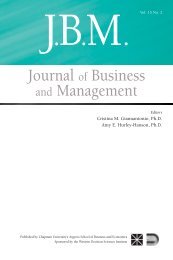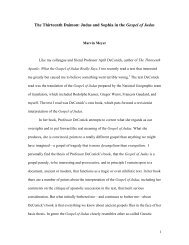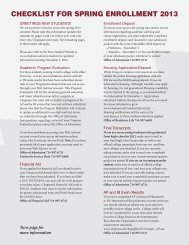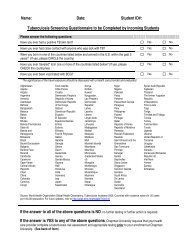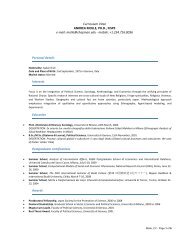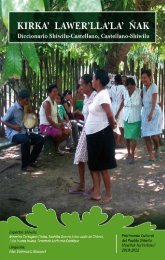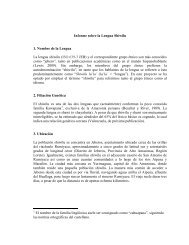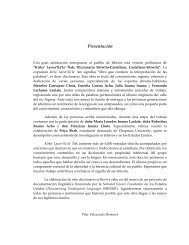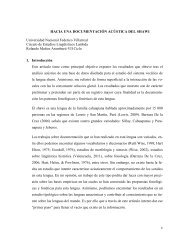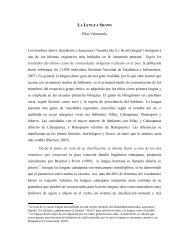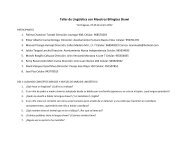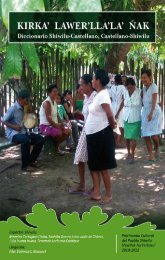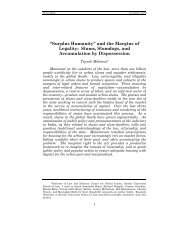Chapman Law Review - Chapman University
Chapman Law Review - Chapman University
Chapman Law Review - Chapman University
Create successful ePaper yourself
Turn your PDF publications into a flip-book with our unique Google optimized e-Paper software.
Do Not Delete 12/7/2011 2:17 PM<br />
24 <strong>Chapman</strong> <strong>Law</strong> <strong>Review</strong> [Vol. 15:1<br />
Indeed, almost no federal laws are aimed directly at fringe<br />
banking. 7 Although many states have implemented measures to<br />
protect consumers, the federal government has largely sat on the<br />
sidelines—until now.<br />
The Dodd-Frank Wall Street Reform and Consumer<br />
Protection Act represents a massive overhaul of the federal<br />
government approach to financial markets generally, and a<br />
momentous sea change in the relationship between the federal<br />
government and fringe banking. One part of this legislation<br />
created the Bureau of Consumer Financial Protection (Bureau).<br />
Unlike the federal agencies before it, the Bureau presents a<br />
remarkable opportunity for the federal government to intervene<br />
in the fringe economy. For the first time ever, the federal<br />
government has empowered an agency to monitor and supervise<br />
fringe creditors, to study fringe credit markets, and to<br />
promulgate rules relating to fringe banking transactions.<br />
This Article aims to describe and assess the effects the<br />
Bureau will have on fringe credit markets. I make two central<br />
claims. First, I argue that the Consumer Financial Protection<br />
Act (Act) gives broad, novel powers to the Bureau to regulate<br />
fringe credit. Part I describes the scope of the Bureau‘s power<br />
under the Act, demonstrating how the Act covers the vast<br />
majority of fringe credit transactions. Part II surveys the<br />
substance of the Act to reveal the surprising emphasis the Act<br />
places on the Bureau governing fringe banking transactions. The<br />
scope of the Bureau‘s authority coupled with its substantive<br />
mandate to confront problems in fringe credit markets signal the<br />
new power and interest the federal government has taken in the<br />
fringe economy.<br />
Second, I argue that most of the justifications that have been<br />
offered for the Bureau regulating fringe credit are flawed. To<br />
understand why people have contended the Bureau should<br />
govern the fringe economy, I surveyed the two most important<br />
academic articles arguing in favor of the Bureau, and I conducted<br />
an empirical study to measure the frequency of the rationales for<br />
the Bureau regulating fringe credit in media, government press<br />
releases, and testimony to Congress. Part III presents the<br />
results of the study, and it assesses the different rationales for<br />
the Bureau intervening in fringe credit markets. Some<br />
7 The one exception is the Talent-Nelson Amendment aimed at stopping payday<br />
lenders from lending money to military personnel. 10 U.S.C. § 987 (2006). See generally<br />
Patrick M. Aul, Note, Federal Usury <strong>Law</strong> for Service Members: The Talent-Nelson<br />
Amendment, 12 N.C. BANKING INST. 163 (2008) (discussing the intent and effects of the<br />
Talent-Nelson Amendment).



